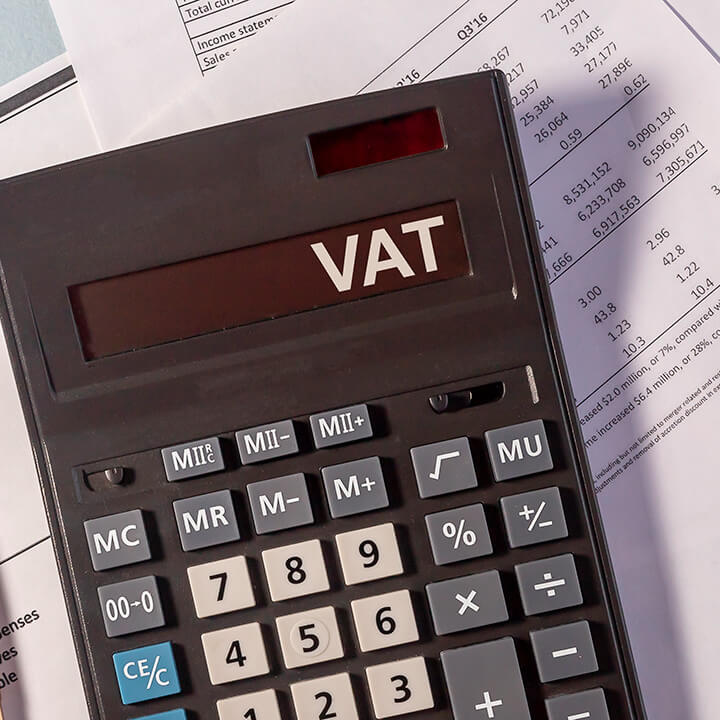VAT changes to early termination fees and settlement payments: Will they affect your contracts?
10th March 2022
What is the issue?
HMRC have recently issued guidance on the VAT treatment of fees and other amounts payable on early termination of a contract. This new guidance is a change to the previous position and means that many such payments which were treated as outside the scope of VAT will now be subject to VAT.
The changes will come into effect from 1 April 2022
How have HMRC’s views changed?
HMRC acknowledge they have previously accepted amounts payable on contract termination described as compensation or liquidated damages as being outside the scope of VAT, unless they were clearly paid as a settlement of amounts due for VATable supplies under the contract.
HMRC will now treat payments arising out of contract termination as further consideration for the underlying supply where the payments are linked to that supply, and HMRC say that will normally be the case. If the underlying supply is subject to VAT, a payment on termination which is treated as consideration will also attract VAT.
The treatment applies irrespective of how the payments are described, and designation of amounts as compensation, liquidated or other damages or penalties will not be relevant.
This approach also applies both to termination fees and similar amounts provided for in a contract and payments made outside the contract terms, for example in a settlement agreement.
Businesses are likely to find that termination fees or settlement payments which have previously been outside the scope of VAT are now subject to VAT.
Examples of payments covered by this approach include: fees payable on early termination of a contract, (such as where a fee is payable on early termination of a contract for telecoms services); fees payable on early termination of a car or other equipment lease; and fees payable where a customer does not take the full amount of supplies it has agreed to take. Payments under liquidated damages clauses are also treated as payable for services under the main contract and therefore subject to VAT if the underlying supply is subject to VAT. Payments for extended use after a contract term, such as where a hire car is returned late, are also covered by the guidance and will usually be subject to VAT.
Where there is no contract term providing for payment but the parties agree an amount payable for early termination by the customer, the same principles apply. Such settlement amounts will now be subject to VAT where they are linked to the supplier’s loss of earnings or costs and the contract supplies are VATable.
For the property sector, it is helpful that the guidance confirms that genuine dilapidations payments on termination or surrender of a lease will continue to be outside the scope of VAT unless value has been artificially shifted towards the dilapidations payments.
When do the changes apply from?
This revised VAT treatment applies to all supplies made from 1 April 2022.
Importantly, the new approach applies even where the business has previously obtained HMRC’s agreement to a different treatment.
Practical implications
Businesses should review whether HMRC’s revised approach could be relevant to their contracts. Generally, contract terms providing for payment (however described) linked to termination, extended use or failure to take contracted supplies will be now be subject to VAT where VAT is paid on the contract supplies.
Damages or other amounts payable under a settlement or otherwise in respect of contract breach or agreed termination are also now likely to be subject to VAT on the same basis.
For a payment or part of it not to be treated as consideration, the supplier will need to evidence that it is wholly or in part punitive, or otherwise clearly not attributable to the supplier’s costs or loss of earnings under the terminated contract. In such cases, the client should take specific tax advice.
The charging of VAT on termination amounts will be a net cost to parties who are unable to recover the VAT in full- for example, businesses in the financial services and insurance, healthcare or residential letting sectors. Such parties are likely to scrutinise the VAT position of termination and similar payments to ensure that they are being correctly charged VAT.
How we can help
Walker Morris Tax and Commercial Dispute Resolution teams have extensive experience of reviewing the VAT treatment of contract payments and payments arising on contract disputes. We can support businesses when it comes to reviewing their contracts and we can advise on payments arising in connection with commercial contract disputes. For further advice or information, please contact Nicola Parkinson or Gwendoline Davies.


